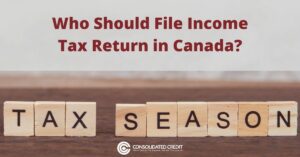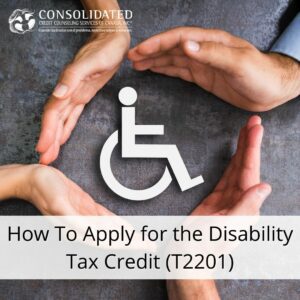The tax season is almost here, and you can get your tax filing out of the way easily. All you need to do is know what documents and forms you need, what deductions apply to you, and how to file your tax return. The Canada Revenue Agency can provide clarifications if you are unsure about your taxes. Keep reading to get prepared for filing your 2022 personal income taxes.
When are 2022 taxes due?
Generally, tax returns are due on April 30. However, if this date falls on a weekend or a public holiday, as it does in 2023, the tax deadline is set to the next business day. That means taxes are due on May 1st, 2023.
For self-employed Canadians, the tax filing deadline is different and is usually June 15 every year. Similarly to personal taxes, if this date falls on a weekend or public holiday, the deadline is set to the next business day.
If you do not file your taxes by the deadline, the Canada Revenue Agency will impose a tax penalty.
Important tax changes for this year
The tax system in Canada uses marginal tax rates, and the federal tax brackets have changed for 2022. Depending on your taxable income, the following tax rates will apply to your income for 2022.
Federal tax rates
| 2021 Tax bracket | 2022 Tax bracket | Tax rate |
| $0 to $50,197 | $0 to $53,359 | 15% |
| $50,197.01 to $100,392 | $53,359.01 to $106,717 | 20.5% |
| $100,392.01 to $155,625 | $106,717.01 to $165,430 | 26% |
| $155,625.01 to $221,708 | $165,430.01 to $235,675 | 29% |
| $221,708.01 and above | $235,675.01 and above | 33% |
Alberta tax rates
Some provincial tax rates have also changed. For example, if Alberta taxes are applicable to you, these tax bracket changes will impact your taxes. Visit your province’s government website to verify your provincial tax bracket.
| 2021 Tax bracket | 2022 Tax bracket | Tax rate |
| $0 to $131,220 | $0 to $142,292 | 10% |
| $131,220.01 to $157,464 | $142,292.01 to $170,751 | 12% |
| $157,464.01 to $209,952 | $170,751.01 to $227,668 | 13% |
| $209,952.01 to $314,928 | $227,668.01 to $341,502 | 14% |
| $314,928.01 and above | $341,502.01 and above | 15% |
Ways to file your taxes
You can file your tax return yourself or use a tax representative. A tax representative can be an accountant or tax expert.
If you decide to file your taxes yourself, you can do this online or through paper form. Filing your taxes online is the fastest and easiest way to submit your 2022 tax return.
The CRA allows you to file taxes online using approved software providers through the NETFILE system. Canadian businesses can use the EFILE online tax filing system.
When you file your tax return online, you can receive your tax refund in two weeks. Your tax refund will be deposited in your bank account, and the CRA will send your tax assessment. If you owe taxes, your tax assessment statement will report this amount.
Alternatively, you can use a tax clinic to file your tax return. Most tax clinics require you to have a simplified tax situation or fall within a certain tax bracket.
Tax documents you’ll need
You should start putting your tax documents together early, even if the CRA hasn’t requested you to submit them yet. The CRA recommends keeping your supporting tax documents for at least six years from the year you filed.
Tax documents help you report the correct income you have made in the year and claim expenses, credits, and deductions to reduce your taxes.
Examples of tax documents you need to keep are:
- Pay stubs
- Tax slips
- T5 Statement of Investment Income
An example of a tax slip is a T4 Statement of Remuneration Paid, which shows your personal income from all employment. A T5 Statement of Investment Income shows income from investments.
If you run a self-employment business, tax documents you may need to include are:
- Business contracts
- Income
- Expense receipts
- Bank statements
- Tax slips
How much taxes will you pay?
Your personal income taxes are determined by your taxable income, tax bracket, and tax credits.
In addition to federal taxes, you will also pay provincial or territorial taxes, depending on your income. Provincial and territorial tax brackets are different from federal tax brackets. They also differ by province.
You can use this income tax calculator to estimate your federal and provincial taxes.
Tax credits vs tax deductions
Reduce your personal income taxes and maximize your tax return by claiming eligible tax credits and deductions. This would be in addition to your basic personal amount.
Tax credits reduce your income tax dollar for dollar, and they can be refundable or non-refundable. Refundable tax credits can be paid to you even if you do not have any taxes to reduce. On the other hand, you must use your non-refundable tax credits to cancel or reduce your taxes, or you lose them.
All Canadian taxpayers are eligible for a non-refundable tax credit called the personal amount. If you earn taxable income, you can reduce your taxes by claiming federal and provincial personal amount tax credits. You can claim a federal basic personal amount tax credit of $15,000.
Other examples of non-refundable tax credits are:
- Tuition
- Canada Pension Plan (CPP)
- Québec Pension Plan (QPP)
- Disability
- Donations
- Gift
Examples of refundable tax credits are:
- Goods and services tax/harmonized sales tax (GST/HST)
- Working income tax credit
If you meet the eligibility criteria for a refundable tax credit they are available to you even if you do not have taxable income.
Tax deductions reduce your taxable income. If you do not claim your tax deductions, the CRA will apply your marginal tax rate to a higher income amount, and you will pay higher taxes.
Not everyone is eligible for the same tax deductions. For example, you have to make contributions to your Registered Retirement Savings Plan (RRSP) to claim RRSP deductions.
Other tax deductions available to claim include:
- Education
- Childcare expenses
- Moving costs for work and education
- Disability support
- Professional dues
The CRA classifies some personal income as non-taxable. For example, they will not take income from lotteries, gifts, and inheritances. Non-taxable income can also be called tax exemptions
Conclusion
Take advantage of tax credits and deductions to reduce your 2022 income taxes. Before you file your tax return, you can estimate how much of your personal income goes to taxes. Ensure to file your taxes before the deadline and pay any amounts owing to the CRA to avoid any penalties.
If you are expecting a refund, register with the CRA online to receive your refund directly in your bank account.
If owing taxes has you stretched financially, trained Credit Counsellors at Consolidated Credit Canada can help.





